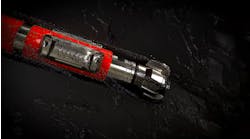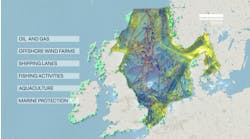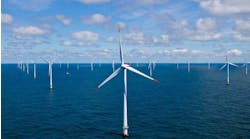Offshore staff
LONDON — A new report from Offshore Energies UK (OEUK) confirms the UK offshore oil and gas sector is making good progress in reducing greenhouse-gas emissions from the production, transport and processing of North Sea hydrocarbons.
Levels are more than 20% lower than in 2018.
However, the authors caution that the industry needs the UK government to create the conditions for it to invest in large-scale emission abatement projects, if it is to meet the North Sea Transition Deal’s 2030 target of a 50% reduction.
Will Webster, OEUK’s energy policy manager, said, “We must build on the good progress we’ve achieved through actions including platform modifications, streamlining planned shutdowns and investing in ways to rationalize energy consumption. OEUK will continue to secure input from operators and the supply chain to accelerate this change and to ensure flaring, venting reduction and abatement technologies are widely applied across production facilities on the UK Continental Shelf. If companies are to invest and give the go-ahead for large capital investment projects like replacing gas and diesel with electricity to power offshore platforms, which will significantly cut emissions, they need government help to enable this to happen.”
He called for clear regulatory frameworks around offshore network connections, guidance on planning for offshore wind projects and a timely grid connection for oil and gas platform electrification.
Among the report’s main conclusions:
- Since 2018, UK offshore CO2 and methane emissions have fallen from 18.8 MM metric tons of CO2 equivalent (CO2e) to 15.03 MM metric tons of CO2e.
- Over the same period, methane emissions are down 36%, with the Methane Action Plan helping companies improve performance.
- Flaring and venting of greenhouse gases is down 36% from the 2018 baseline year.
- Overall carbon intensity (total UK oil and gas production divided by total carbon emissions), although slightly higher in 2021, is at 20.81 CO2/boe and remains below the intensity of the 2018 baseline.
Any new investment resulting from the recently opened 33rd Licensing Round will also contribute to these goals, OEUK added, as new developments will be lower emission intensity than the resources they replace and most of the UK’s imported sources of oil and gas.
10.21.2022



